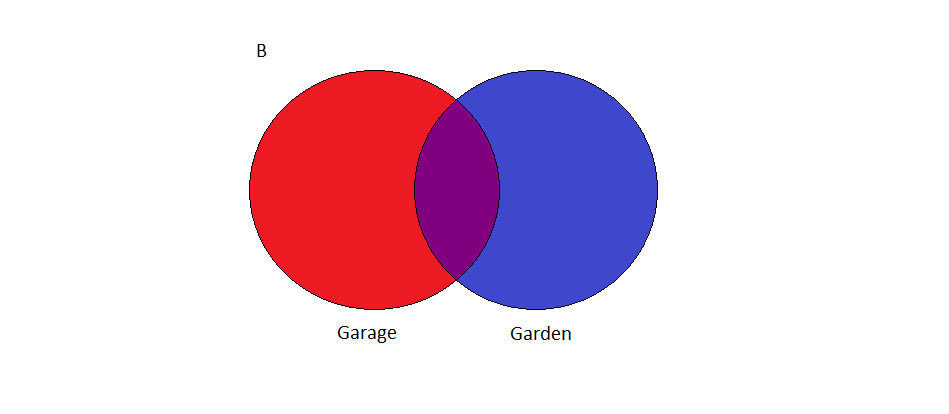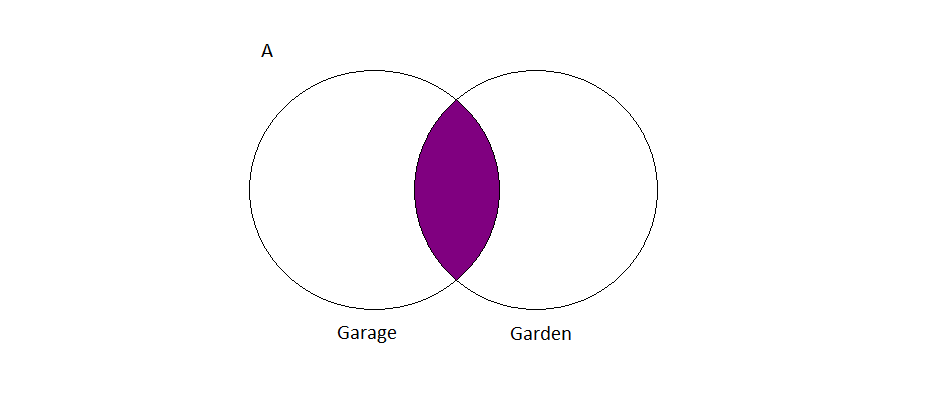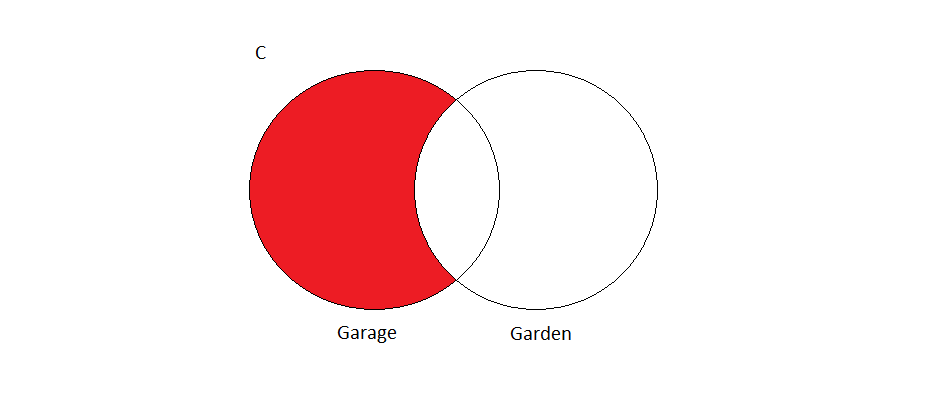Searching effectively for the evidence
Learn how to turn a clinical question into an effective search strategy to find high quality evidence, particularly in databases.
3. Structuring your search
3.2. Boolean operators (part 2)
Which Venn diagrams did you choose to represent each of the scenarios? Here are the answers with a bit more explanation about when you'd use each of the operators.
An OR search
- It would be great if you can afford a place with a garden and a garage, but if you can't then either would be good.
Here you want to find any houses that have either a garden, or a garage, or perhaps both. So, you would search garage OR garden, which is represented in diagram B.

An OR search broadens your search, so you'd use OR when you're combining synonyms or related terms. For example, if you're looking for anything on dry mouth you could search xerostomia OR dry mouth OR hyposalivation, because you want to look for studies that use any of those terms.
An AND search
- The dog needs somewhere to run around safely outside, but it's important that you have somewhere to put the car too.
In this case you're not interested in houses that have a garden, but not a garage, or those that have a garage, but not a garden. You only want to find those that have both a garden and a garage. So you would search for garage AND garden, as shown in diagram A.

An AND search narrows your search. You'd use this when you want to combine different components of your search to make sure the results are specific to you research question. For example, if you were looking for evidence on preventing dry mouth specifically in elderly patients, you could search dry mouth AND elderly, because you want to find studies that talk about both those things.
A NOT search
- You have a car, but you certainly don't have green fingers, so no point spending money on somewhere with a garden.
Here you want to find any houses that have a garage, but you then want to exclude those that have a garden. You could do a search for garage NOT garden, as shown in diagram C.

A NOT search can be used if you want to exclude something, thereby narrowing your search. For example if you wanted to find some evidence on risk factors for dry mouth, but were not interested in medication as a cause, you could search dry mouth NOT medication. Be aware that this would exclude any studies that mention medication in the title or abstract, even though the article might actually talk about lots of other causes that you were interested in. NOT searches should be used with caution as there is a risk of missing out on useful and relevant evidence.